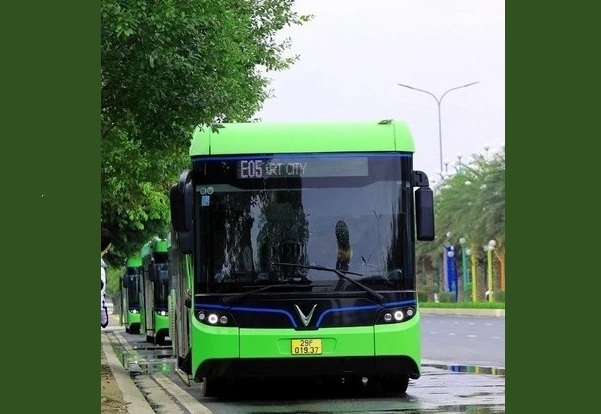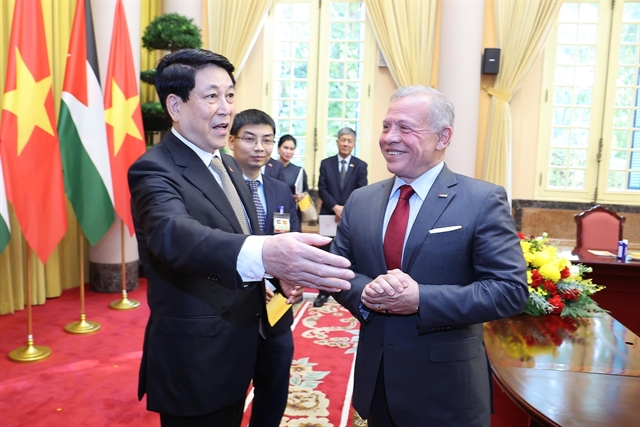Hanoi, November 20, 2025 – The Europe Today: Deputy Prime Minister Trần Hồng Hà has signed a government decision approving a comprehensive National Action Plan on air quality for 2026–2030, setting ambitious targets to combat pollution and promote environmentally sustainable development across Vietnam.
A key goal of the plan is that by 2030, 100 per cent of public transport vehicles in Hanoi and Ho Chi Minh City will operate on clean and environmentally friendly energy. The plan focuses on limiting, preventing, and gradually addressing air pollution in major economic regions, with special attention to the capital and southern urban centres and their surrounding provinces.
The action plan emphasizes strengthening national capacity for air pollution prevention, improving air quality management, and contributing to public health protection, a green economy, and sustainable growth. By 2030, nationwide air quality is expected to show clear improvement.
Specific targets include reducing annual average PM2.5 concentrations in Hanoi to below 40 µg/m³, representing a 20 per cent reduction from 2024 levels, while at least 80 per cent of days should register ‘good’ or ‘moderate’ air quality according to the Vietnam Air Quality Index (VN AQI). Surrounding provinces, including Thái Nguyên, Phú Thọ, Bắc Ninh, Hưng Yên, Hải Phòng, and Ninh Bình, are required to cut average PM2.5 levels by at least 10 per cent. Ho Chi Minh City and other urban centres will also see year-on-year improvements in air quality.
The plan mandates strict management and emission reduction in high-risk industries such as cement, thermal power, steelmaking, and boilers. All road vehicles, including cars, motorcycles, and scooters, will be regulated under national emissions standards. Urban transport infrastructure will be upgraded to support green mobility, with public transport fleets gradually transitioning to clean energy, in line with Prime Minister’s Decision 876/QĐ-TTg of July 22, 2022. Policies will also encourage the transition of technology-based delivery and ride-hailing vehicles to green energy.
Urban sanitation and green spaces will be enhanced, including stricter management of construction sites, elimination of dust and waste, and expansion of parks and urban forests. Open burning of waste and crop residues will be banned, with 100 per cent of agricultural by-products recycled or reused by 2030. Religious and spiritual establishments must adopt measures to reduce emissions from ceremonial burning.
By 2030, Vietnam aims to have 1,200 certified green buildings, including at least 200 in Hanoi and 500 in Ho Chi Minh City. Investments in scientific research, advanced monitoring technologies, artificial intelligence, and digital systems will strengthen air quality surveillance, forecasting, and early warning capabilities. A National System for Air Pollution Warning, Forecasting, and Control will be established to enable timely responses to severe pollution events.
Beyond 2030, Hanoi aims to reduce PM2.5 concentrations by an average of 5 µg/m³ every five years, targeting national ambient air quality standards by 2045, with nationwide air quality maintained at good levels.
The plan outlines nine priority tasks, including completing legal frameworks, promoting technology transfer, managing industrial emissions, strengthening public transport, enhancing urban sanitation, controlling open burning, building monitoring and early warning systems, improving enforcement, and fostering international cooperation.
A National Steering Committee on Air Pollution Control will advise the Prime Minister and coordinate intersectoral efforts, particularly in the capital region. The Ministry of Agriculture and Environment will lead implementation, coordinating with other ministries, provincial authorities, and socio-political organizations. An interim review is scheduled for late 2027, with a comprehensive evaluation in late 2030.
The government decision takes effect immediately, marking a major step in Vietnam’s efforts to safeguard public health and build a sustainable, green economy.














